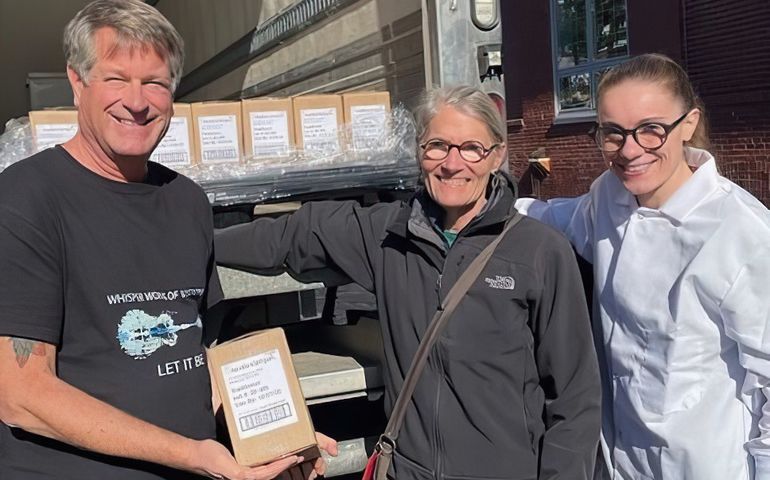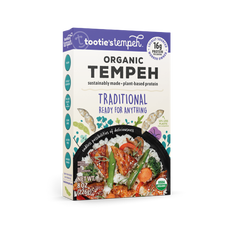
Biddeford tempeh startup aims for fast tempo in growth
 Photo courtesy / Tootie’s Tempeh
The Tootie’s Tempeh team includes (from left) production manager Michael LaCharite, co-founder and CEO Sarah Speare and production assistant Kate Musser.
Photo courtesy / Tootie’s Tempeh
The Tootie’s Tempeh team includes (from left) production manager Michael LaCharite, co-founder and CEO Sarah Speare and production assistant Kate Musser.
Three years after Tootie's Tempeh set out to disrupt the vegan food world, the Biddeford-based startup is selling its soy-based product at 50 stores across Maine and Massachusetts with national expansion in mind.
Retail outlets in Maine include the Portland Food Co-op and Rosemont Market & Bakery.
"Sales are going really well, tracking above projections," said CEO and co-founder Sarah Speare, who leads the three-person worker-owned cooperative that makes tempeh from fermented organic soybeans sourced as much as possible from Maine growers.
So how is tempeh different from tofu, a plant protein more familiar to U.S. consumers?

While tofu is made from the milk or curd of soybeans, tempeh is made from the whole bean and thus has a higher protein content and a different texture, according to Speare. Tempeh, whose name is thought to be derived from the old Javanese "tumpi," originated in Indonesia.
"It took a while to come to the U.S., but the demand for healthy, high-protein plant-based, minimally processed, clean and high-fiber food has increased its popularity and that will only increase as these trends are growing stronger," Speare said. "It is much more widely known and eaten around the world."
Tootie's Tempeh's innovation: A more sustainable production method without the use of plastic bags, which Speare says also removes the bitter aftertaste that's a turn-off for some.
"If our product didn't taste good," she said, "we wouldn't have a market, and the really fun part of going plastic-free fermentation is that our tempeh tastes so much better than regular tempeh. We didn't know that would happen."
Growth ambitions
Tootie's Tempeh is selling one product, for use in cooked dishes, to be followed in coming months by Italian-seasoned tempeh (for use in pasta dishes) and caraway-seasoned tempeh (for use in tempeh Reuben sandwiches and other dishes). The 8-ounce cakes can be sliced in half lengthwise or into strips, crumbled, cubed or kept as thick cakes.
The company, which gets most of its soybeans from Aurora Mills and Farm in Aroostook County, recently received a $33,299 grant from Maine Technology Institute to scale up its proprietary fermentation equipment to room size.
"We are half way into the fermentation room, with all the parts ordered and assembly and testing to happen in the next four to eight weeks," Speare said.

The company aims to add two additional hires in production over the next six months as well as a social media intern, she said. Working with Crown O'Maine, a wholesale distributor based in North Vassalboro, Tootie's Tempeh aims to expand its retail reach in the near future.
"We will be presenting to Hannaford and Whole Foods in the next few months and both had preliminary interest, which is encouraging," Speare said.
From a geographic perspective, "we will be expanding into all of New England from our Maine facility," Speare said.
"We plan on becoming a national brand by licensing or franchising production facilities across the country," she added, "so that wherever Tootie's is purchased the consumer is always supporting their local farmers, workers and communities."














0 Comments